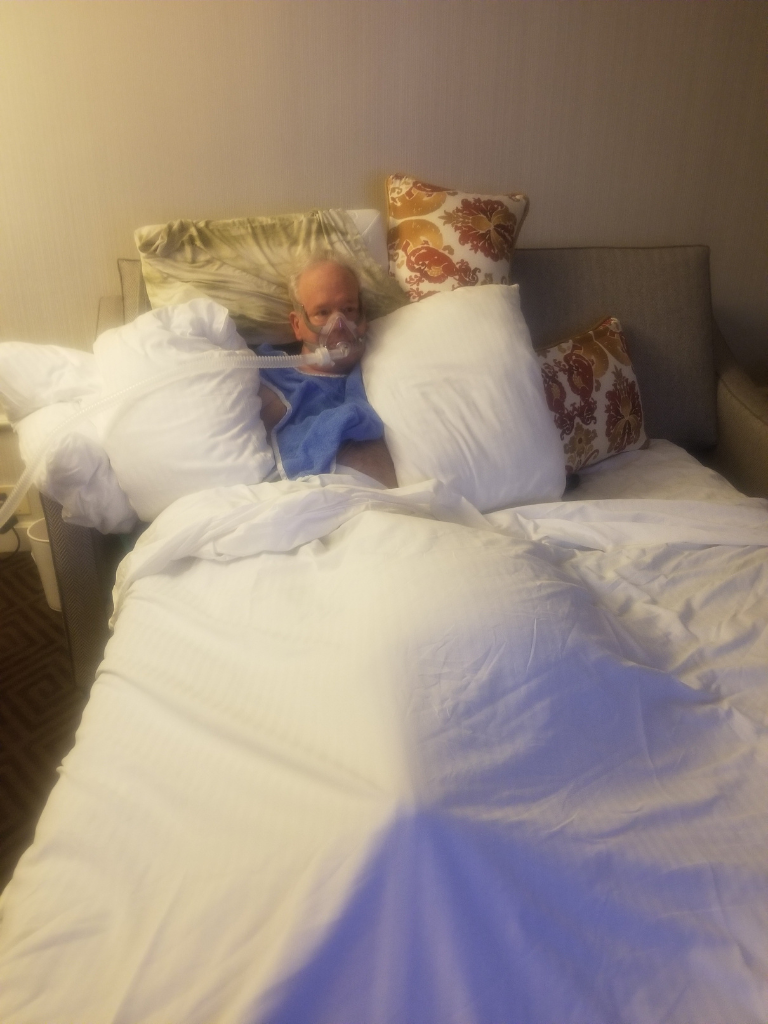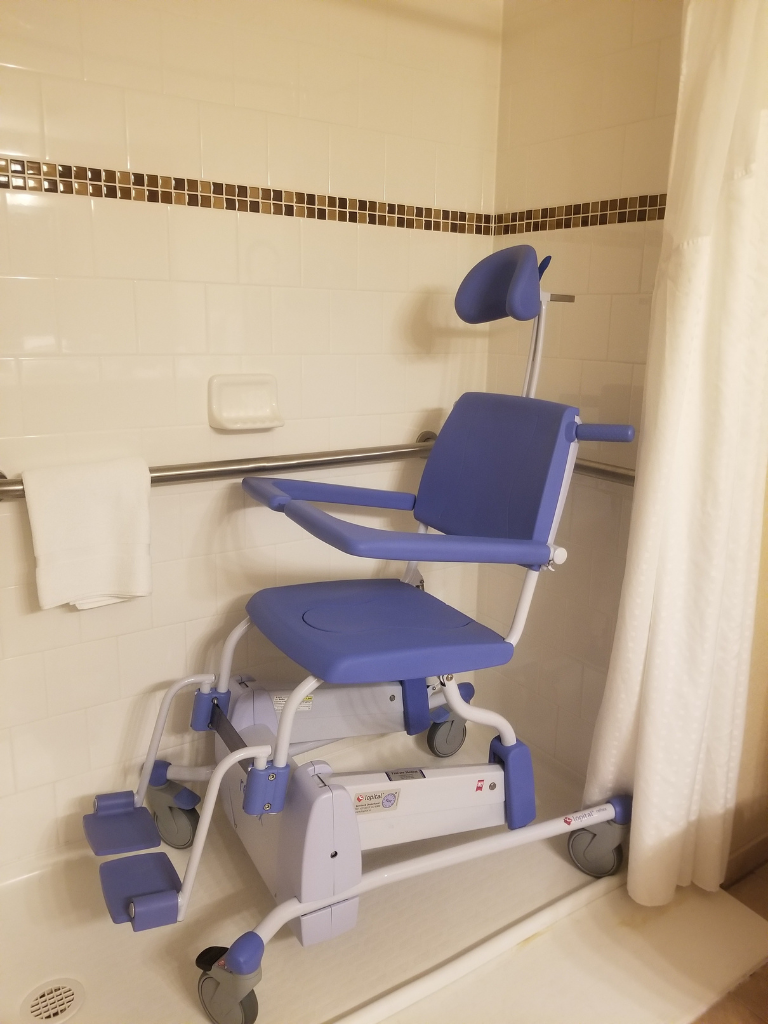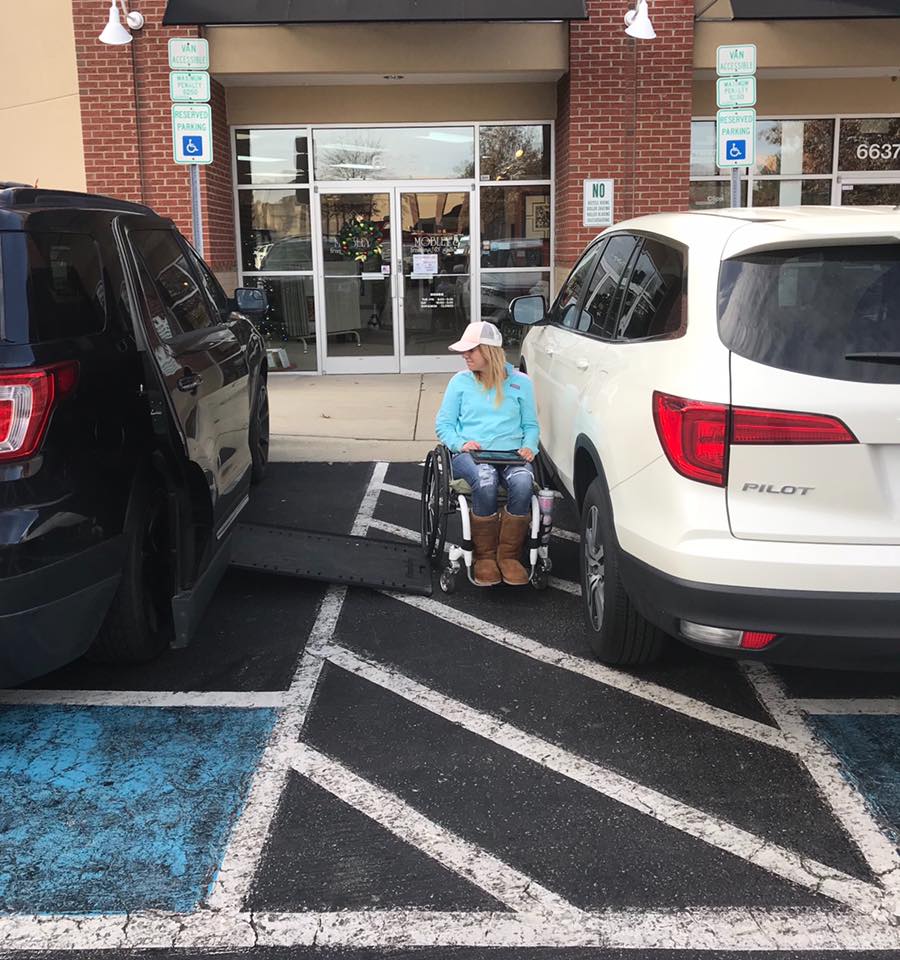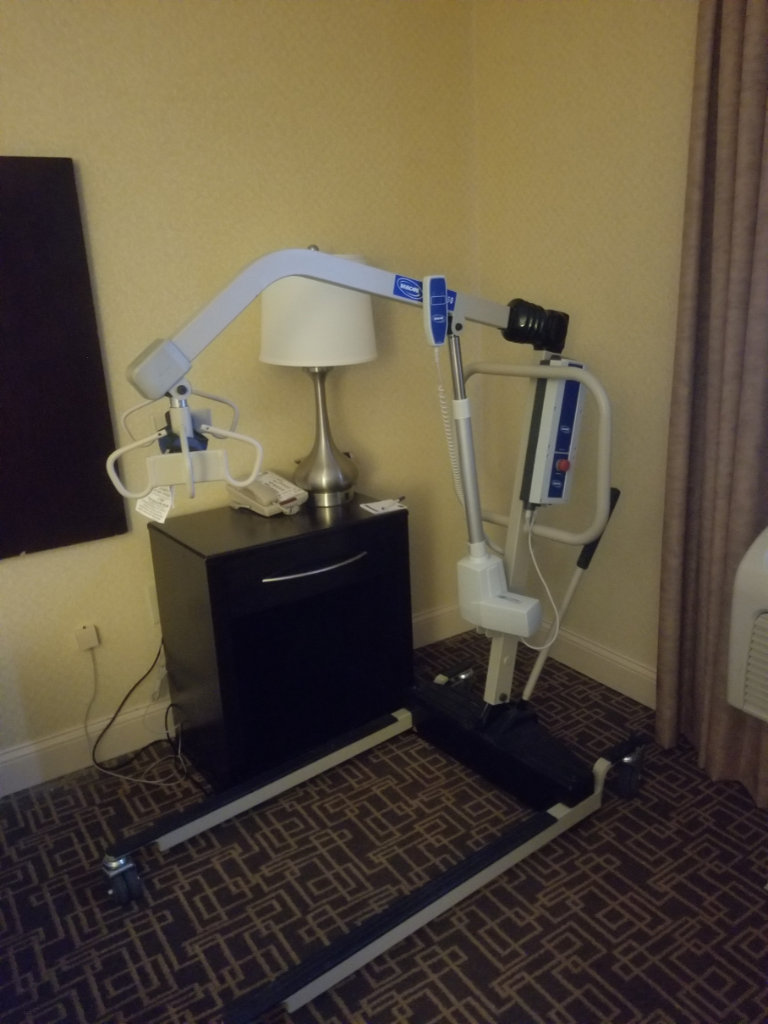
There are moments that reveal how invisible disability still is. Not in theory, but in practice. Like pulling into a hotel parking lot and realizing the accessible entrance is blocked by planters. Like checking into an “ADA compliant” room, only to find the bed too high for a transfer, or the bathroom door too narrow for a wheelchair to pass through. These aren’t rare problems. They’re everyday ones. And during Disability Pride Month, we’re not here to celebrate around them. We’re here to name them.
Accessibility Gaps Are Still Everywhere
Access isn’t a luxury. It is a right. But that right often feels like a suggestion that can be ignored for convenience or overlooked because someone didn’t think through what it means to actually live this way. Not visit. Not design on paper. Live.
For those of us in the ALS community, these small details become defining moments. A door that doesn’t open automatically. A ramp that angles too steep. A public restroom with a grab bar placed just out of reach. These aren’t just annoyances. They can mean the difference between going out or staying home. Between independence and isolation.
A huge example often shows up in hotel rooms. Because not everyone who needs an accessible room uses a walker or a lightweight transport wheelchair. Sometimes, the person needs a full lift or a second person to help them safely transfer into a bed or another chair. And a platform bed, while trendy, can completely block that process. The room might meet ADA guidelines, but still fail the real life test of accessibility.

What Disability Pride Really Means This Month
Disability Pride Month is about visibility, truth, and naming the obstacles that shouldn’t be there anymore.
It began in July 1990, the same month the Americans with Disabilities Act (ADA) was signed into law. Disability Pride Month was created to celebrate the strength and diversity of people with disabilities, while also acknowledging the ongoing fight for access and equality. It exists because legal change doesn’t always mean lived change. This month is a reminder that people with disabilities are not defined by their diagnoses or limited by their capabilities. The barriers they face are more often built by a world that still doesn’t fully include them. The ones that make daily life harder than it has to be. And the ones that remind us why Let Hope Grow exists.
Our mission is to stand beside the people living with ALS and help create a world that doesn’t make it harder. That includes advocating for real access. Practical support. Honest conversations about what needs to change. Because what good is awareness if it doesn’t lead to action?
Access Isn’t the Same for Everyone

If you are someone navigating these same frustrations, we see you. If you are a caregiver trying to plan a trip, arrange a ride, or find a room that won’t make your day harder, we understand. And if you are someone reading this who never had to think about automatic doors or shower chairs or the height of a curb, now you know.
Accessibility begins before you ever reach the building. For families traveling with a wheelchair user and a lift equipped van, the parking lot can be the first barrier. Van Accessible spaces are designed to allow side entry and safe transfers. The extra width is not a convenience. It is the only way some people can enter or exit their vehicle safely and with dignity.

When those spaces are taken by someone who doesn’t need the additional room, it forces hard choices. Waiting. Turning around. Skipping the trip entirely. Just like a too high bed or a narrow doorway, an unavailable parking spot can make the day feel heavier than it already is. Every piece of the environment matters. Not just for comfort, but for inclusion.
You can support our work by learning more at lethopegrow.org, or by donating directly here. You can also follow us on Instagram and TikTok, where these stories are told in real time, by the people living them.
This month, we honor the truth. Disability pride is not about pretending everything is fine. It is about honoring how hard people fight to live with dignity, despite all the ways the world still resists making space for them.
Let Hope Grow will never stop fighting for that space. Not just during Disability Pride Month, but every single day someone needs it.